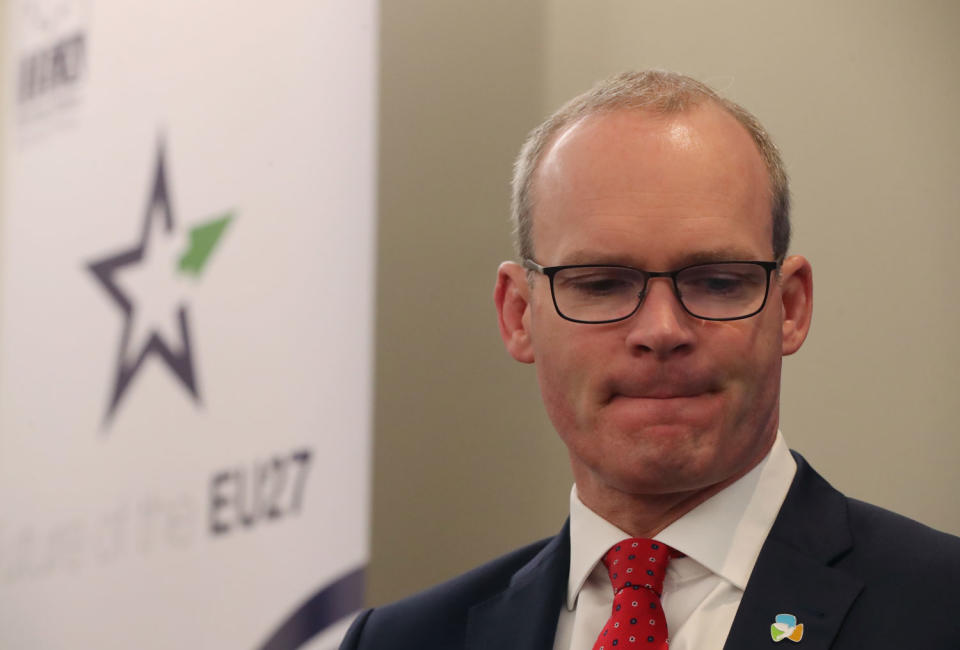Irish foreign minister floats 21-month Brexit delay

Irish foreign minister Simon Coveney suggested on Thursday that the European Union would likely agree to a 21-month Brexit extension, meaning the UK’s departure from the bloc would not happen until the end of 2020.
UK prime minister Theresa May, Coveney said, was offering a “stark choice” to her parliament. Either MPs “back a deal by the middle of next week” or the UK government “will look for a much longer extension to allow Britain to re-think its approach to Brexit.”
Speaking on Irish radio, Coveney warned that a no-deal, crash-out Brexit could still happen by accident, “even if a majority of people don’t want that to happen.”
“The legal position as of today is that Britain leaves at 11pm on the night of 29 March,” he said.
The UK parliament, Coveney said, will have to change the law to extend Article 50. The UK would “probably” get agreement from the EU on such an extension “as long as there is a plan to go with that.”
If MPs back a deal in the coming days, the EU would facilitate a short “technical extension” so that May’s government could pass the necessary legislation, he said.
If that does not happen — and considering MPs voted on Wednesday to avoid a no-deal Brexit in any circumstances — a much longer extension would be needed, Coveney suggested.
“If you have a long extension of Article 50, that opens up the debate in a much broader way to the overall approach that the United Kingdom takes to Brexit, and I think that may facilitate a fundamental re-think. It may not. We just don’t know.”
He noted, however, that this would mean that the UK will be required to “fully participate” in the upcoming European parliament elections.
“If you have a long extension of, say, 21 months to the end of 2020, or whatever the period would be, well then, Britain has a legal entitlement to have representation in the European Parliament,” he said.
Coveney was also critical of the no-deal Brexit tariff regime announced by the UK on Wednesday, which would see tariffs introduced on many beef, lamb, pork, poultry, and dairy products.
READ MORE: UK no-deal Brexit tariffs a ‘potential disaster’ for Irish farming
Even though the regime would have a severe impact on Irish agriculture, the announcement did not make Ireland more likely to break ranks from the European Union.
“It has had the opposite effect, actually. It’s actually galvanised the European Union,” Coveney said, noting that the plan was not “workable.”
“Even the British government themselves say that this is a very short-term arrangement, and actually what’s needed in a no-deal scenario are urgent talks between the Irish government, the British government, and the European Commission to try to put something more viable and sustainable in place.”

